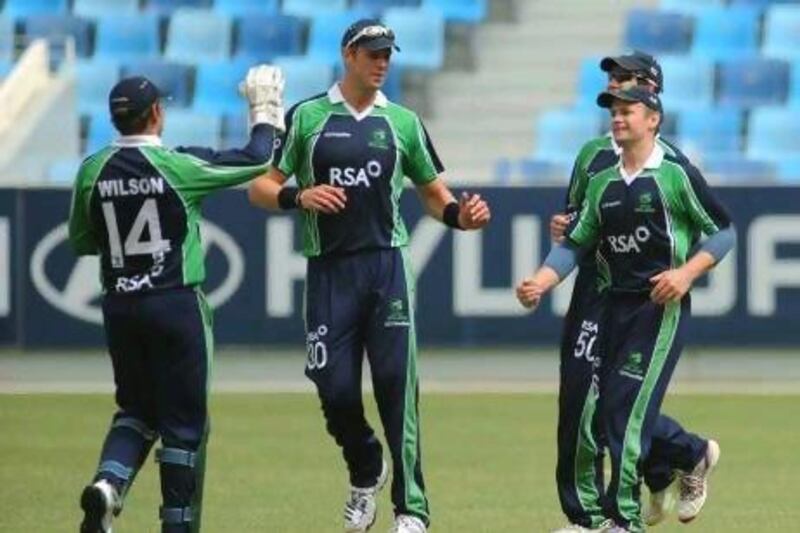Ireland and Afghanistan are starting to become a problem. It used to be easy to damn each of them with faint praise. Oh look, they have won again, isn't that sweet?
Not so easy to do that now. They have come too far and are just too good. They just would not go away, would they?
Which causes a problem. Where to now for two of the best success stories in world sport of the past decade?
Currently, they are stuck in the ether: too good for the level they are playing at, yet not permitted into the "cosy club" of Test nations just above them.
They must be the elephants in the room at every ICC annual conference, when the suits gather to consider cricket's major issues.
It is easy to envision Warren Deutrom, the chief executive of Cricket Ireland, or Nasimullah Danish, today's incumbent in the same position in Afghanistan, straining for recognition at the conference.
"Er, excuse me, over here, can we talk about us now, please?" they might ask, raising their hands to attract attention.
It probably prompts some uneasy rustling of papers among the other suits, before someone says: "Is that the time? The Beef Wellington must be ready, let's call that lunch." Better luck next year.
The final destination for these two nations may as yet be unclear.
But the journeys Ireland and Afghanistan have taken to get here - in Dubai at the weekend each qualified to play in a second successive World Twenty20 - have been remarkable.
Yet totally, wholly contrasting.
Ireland's rise from being a promising first XI which seemed to be reliant on a few key players imported from Australia and South Africa at the start of the last decade to where they are today has been an object lesson in shrewd management.
As William Porterfield, the Northern Irishman who is the captain of a united Ireland national team, said on Saturday, they have ticked all the boxes from an ICC perspective.
They have secured corporate sponsorship, they have professionalised the senior playing operation, and they have beaten a variety of the big boys on the global stage.
It has been a little like filling in an immigration form, ticking all the right boxes, having all the correct documents, wearing your best smile ... then just being refused an entry visa for no good reason.
Afghanistan, meanwhile, have reached this point in spite of the system that created them.
Their thrilling national cricket team are a product of circumstance - as well as some helping hands from the MCC and the ICC's development programme - rather than sound management.
They have existed in a leadership vacuum for much of the past 10 years.
Their cricket board has been riven by perpetual change, which is a reflection of the muddy political situation in the country.
Yet the players have carried on regardless, under the guidance of their gravely respected captain, Nawroz Mangal, and, more sporadically, the coach Kabir Khan.
The two things Afghanistan have in constant supply are talent and support.
On the first point, take Mohammed Shahzad, their wicketkeeper, as an example. He is reckless and overweight, yet he is an amazing cricketer.
The latter of Afghanistan's resources is perhaps the biggest boon to cricket as a whole.
The established order have nothing on the support Afghanistan have.
This has been the longest winter of international cricket the UAE has ever seen.
Yet of all the matches involving the likes of Sri Lanka, England, Pakistan, and even Nepal, Ireland or the USA, none has been as colourful, raucous or enjoyable as those involving the Afghans.
Follow us
[ @SprtNationalUAE ]
& Paul Radley
[ @paulradley ]






